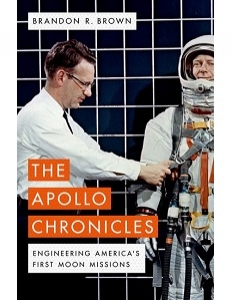There are all kinds of different books on space and, despite the allusion to engineering in the title, this one is definitely more historical narrative than technical manual. The author, himself the son of an Apollo engineer, tells the story of a group of “lesser known engineers who were instrumental in the success of the first manned moon landing”. In this sense, it fits into the ‘advanced reading’ category, in that when you’ve had your fill of astronauts and spacecraft it is time to dig a little deeper.
It’s always interesting when a new ‘convert to the faith’ revisits a well-told story, and this is no exception. The author, who was born just prior to the Apollo 11 mission, has “tried to write a book” that will have surviving Apollo engineers “nodding in approval”. While he appreciates the bravery of the astronauts, who sat on “towers of explosive fuel” and ventured into “a deadly realm”, his book is “more concerned with the astronauts’ protectors”, those all-important engineers.
Sparsely illustrated in black and white, and complete with chapter notes and index, this book offers an academic treatment but is written in an entertaining and accessible narrative style. Among many other interesting facts, it reveals a little-known aspect of the Apollo simulators: they failed to simulate the communications signal delay between the Earth and the Moon (a round-trip delay of some three seconds). This led to “awkwardness” in that “we were always talking over each other”, according to simulations expert Frank Hughes. “It’s the first time humans had to really deal with the speed of light as a problem.”
The book concludes with a thought-provoking observation on the heritage of the Apollo engineers: although their data tapes, photographs and blueprints will eventually fade and crumble, suggests the author, “on the Moon’s stark landscape, the retired rovers and leggy landing stages will abide for millions of years to come”. That is, unless the tourist hoards of the future are allowed to desecrate these historic sites!











